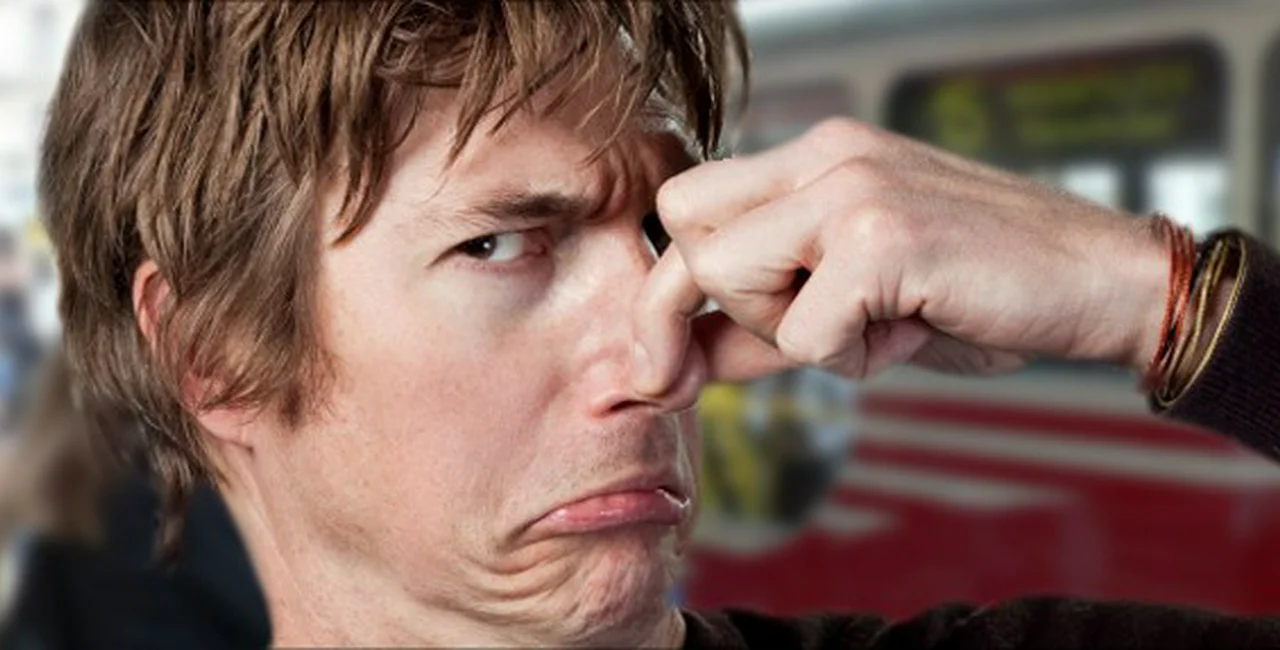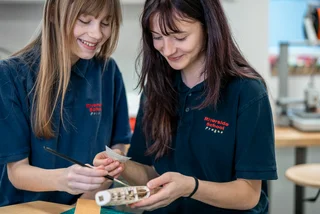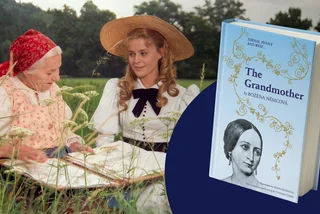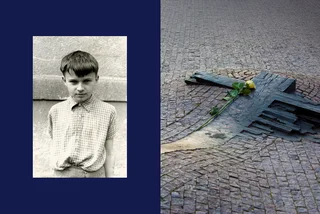It’s probably one of the first observations your guests will make about Prague—and they will likely make this observation on the tram on the way to dinner (where they will make a second observation about the dearth of ice cubes in their glass): it smells. And you will roll your eyes and tell them that it’s nothing but the scent of raw humanity whiffed on crosstown busses from New York to Abu Dhabi, even though you know they are right. Prague has a public-transport scent all its own. Halitosis steeped in pilsner and yellow onion, diffused through a veil of body-odor. At the risk of causing an international incident (and, believe me, you will) you can open a window on that bus or tram. Short of buying a bicycle, though, there’s not much to be done about it. Best is to examine the cultural practices—the Czech ones and your own—that have been fueling your aversion to your pikantní seat partner.
I’ve heard, and have registered my fair share of (more about that later), complaints about the stench associated with Prague’s mass-transit system. That the city in July 2011 test-marketed a public bus which issued blasts of cinnamon-tinged air-freshener at regular intervals—a project that failed to take off and was subsequently discontinued—says it all. Apparently it’s not just foreigners who can’t take the particular Czech aroma. But Americans especially have odor paranoia. We lather, lotion, and spritz our personal smell into oblivion because we’re taught from a young age that it’s taboo. Why else would a market for kid’s deodorant exist? Our annual expenditure on deodorant has climbed to billions of dollars. Medical scientists increasingly believe that we’ve taken our fear of uncleanliness so far it could make actually be a detriment to our health. In other words, all that incessant scrubbing may keep healthy bacteria at bay and throw our immune system out of whack. Perhaps that’s why there’s currently a movement afoot in the U.S. that favors less showering and more spot cleaning. For we Americans living in this pungent European city, maybe the time is right to go native.
PARTNER ARTICLE
I’ve read that Czechs, on the other hand, spend the least of all the EU countries on deodorant. And while most of us would have a hard time giving up our daily hot shower (or two), our adopted countrymen, for the most part, take a different approach. Many older bathrooms come equipped with only a tub, not a mounted showerhead. There’s the matter of thrift and conserving water that goes back generations. Throw in some old wives’ tales about how overshowering and shampooing causes hair loss and it all begins to make sense. Just as the Czech preference for infrequent bathing goes way back, so do American attitudes about personal hygiene—and their belief that Europeans have none. Katherine Ashenburg’s book The Dirt on Clean: An Unsanitized History says that as early as the Civil War Americans considered cleanliness democratic and progressive. And then came modern advertising which unleashed a bevy of deodorant ads on the nation. Meanwhile, Europeans held onto the idea that regular bathing in warm water opened your pores to illness.
Ashenburg also rails against the American cult of the whitening strip. Not only are Americans unnerved by smelling human, our teeth should be ivory-white. But shouldn’t our breath also be in a perpetual state of minty freshness? Contributing to that wilting bus-metro-tram funk is the almost chemical reek of halitosis that can come on so intensely as to make one lightheaded. We can attribute that to gastronomic pleasures like a breakfast of bread, škvarky, salami, raw onion, and beer, the strong belief in the medicinal properties of garlic—popped as it is like Pez by my own Czech father-in-law—and our vastly divergent notions of what constitutes proper oral hygiene both by dentists and at home. (Here, I’m reminded of the film “Ene Bene” by Czech director Alice Nellis, in which a man suspects his girlfriend is cheating on him with an American. Why? “She wants me to floss!”).
When I obtained Czech health insurance, I stopped going to my pricey private dentist and visited my husband’s of twenty years. I expected to leave with Arctic-ice breath and teeth that squeaked when I ran my tongue across them, not just a painful plaque-scraping and quick once-over for cavities. I discovered if you want your teeth cleaned you have to go to a dentální hygienistka, not covered by VZP. Slavenka Drakulic’s essay collection Cafe Europa: Life after Communism discusses dental practices in former communist countries at length. She notes that “Bad teeth are the result of bad dentists and bad food but also of a specific culture of thinking of not seeing yourself as an individual.” She asserts that individual responsibility and the “revolution of self perception” has a long way to go. Is communism to blame for the guys with Budvar breath to my left and right? Having written the book fifteen years ago, I suspect if Ms. Drakulic where to ride tram 22 in midsummer—or damp winter, even worse!—she might think the revolution has stalled out.
It’s often difficult to reconcile that smell you’re holding your nose against in a public space and the general fastidiousness of Czech people. I use my own mother-in-law and her epic cleaning and ironing efforts as an example. Or the slippers that you must wear in Czech homes so as not track what’s outside in. This lines up with Ashenburg’s description of her own German grandmother who “Cleaned her house ferociously but not her body, or not very often.” Just as she saw the smell of stale sweat as part of her history, so does my husband. Arriving home from work one evening and railing against the noxious fumes invading my personal space on the commute home, I demanded to know if it didn’t bother him, if he hadn’t ever noticed. Shrug. “It’s a part of my heritage I guess.” So says Ashenburg, The scent of each others’ bodies was the ocean our ancestors swam in.
Reading this line I’m inclined to think that all so much moaning about other people’s stink sounds absurd and just a tad superficial on the part of we painfully sanitary expatriates (though that statement in and of itself is a highly contradictory one). But it’s a very real part of negotiating life in the Czech Republic. Despite what Ashenburg says that our noses can adapt, relearn I still find it a challenge. This my husband knows: Once when I was pulling on coat and boots to leave for the day he presented me with a gift. A two-pack of Vicks Vapor Inhalers. “One for each nostril,” he said. Because even Ashenburg admits that, historically, “extraordinarily smelly people are a different story.”
Related articles












 Reading time: 5 minutes
Reading time: 5 minutes 




















